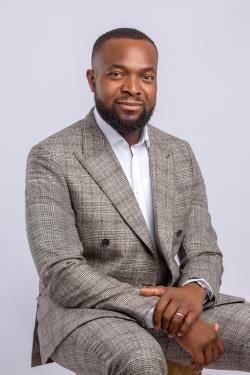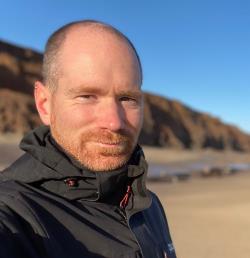WSIS Action Line C5: Beneath the Waves: Safeguarding Global Connectivity through Secure Submarine Networks
International Telecommunication Union (ITU)
Session 170
The need for subsea network resiliency cannot be overemphasized when it comes to either moving huge amounts of data over transoceanic distances or ensuring the connectivity of a small community to the rest of the world. With the increasing dependence of our modern societies on digital services, diversity for international connectivity has become a requirement of the utmost importance.
The recent series of disruptions serves as a reminder of how dependent the Internet is on submarine cables, which are estimated to carry over 90% of intercontinental data traffic. Only a small percentage of general use is done via satellite networks. There are 529 active submarine cables and 1,444 landings that are currently active or under construction, running to an estimated 1.3 million km around the globe.
The impact of events like cable cuts highlights the need for a coordinated, multilateral approach to protecting shared infrastructure across multi-stakeholders. There is an increasing urgency to discuss the set-up of global and regional frameworks for joint monitoring, risk mitigation, and emergency response procedures for the submarine cables. By securing such telecom infrastructure, we can attract more investment, spur economic growth, and enhance competitiveness at the global stage. A resilient and secure infrastructure not only facilitates efficient communication and connectivity, but also signals a commitment to safeguarding critical assets essential for business operations. This assurance can significantly boost investor confidence and create a conducive environment for sustainable economic development.
This panel presents a unique opportunity to discuss potential actions that could be undertaken to encourage subsea connectivity resilience such as:
- promote the diversification of the sub-region’s connectivity (to enable various deployment strategies, ex Cables over power lines) and fibre route diversity (including terrestrial cross-borders routes)
- promote providers diversity.
- conduct regular capacity assessments,
- choke points identification and mapping (highlighting investment opportunities).
.png?maxwidth=250)
Dr. Walid Mathlouthi received a PhD in Optics, Photonics and Lasers. He spent his early career at Optical Research Laboratories in France, Italy, Canada and the US with Intel Corp where he worked, among other things, on the first Raman silicon laser.
In 2021, Dr. Walid Mathlouthi began to work for ITU as the head the Future Networks and Spectrum Management division leading various projects to leverage technologies such as satellite and AI to support economic growth in developing countries and help bridge the digital gap.


Dr. 'Bosun Tijani is the Minister of Communications, Innovation and Digital Economy of the
Federal Republic of Nigeria.
He is the co-founder and former CEO of Co-Creation Hub (CcHUB), the leading pan-African
technology and innovation center with presence in Nigeria, Kenya, Rwanda and Namibia.
Under his leadership, CcHUB became a vital catalyst for the African tech ecosystem, promoting
collaboration, knowledge sharing and the development of groundbreaking solutions to local and
global challenges.
Dr. Tijani holds a Bachelor's Degree in Economics from the University of Jos, a Masters degree
in Information Systems and Management from Warwick University and a Doctorate degree in
Innovation and Economic Development from the University of Leicester. He is also an adjunct
professor at the Wits School of Governance, South Africa, a Desmond Tutu Fellow and fellow of
the Centre for Democracy and Rule of Law at the prestigious Stanford University .

Sandra Maximiano, Chairman of ANACOM's Board of Directors since 15 December 2023, holds a PhD in Economics from the University of Amsterdam. She is Associate Professor of Economics at ISEG - School of Economics & Management, University of Lisbon, where she is co-coordinator of XLAB - Behavioral Research Lab and of the Master's Degree in Economics program. She is also a Visiting Associate Professor at the Faculty of Law of the University of Coimbra. She was previously an Assistant Professor at Purdue University and a Research Fellow at the University of Chicago in the United States. She has also taught at the Católica Lisbon School of Business & Economics and the Nova School of Business and Economics. Her academic research spans several areas: experimental and behavioral economics, organizational and labor economics, public policy, and information management.

Chang Xin serves as the Vice President of Standardization and Industry Development at Huawei Technologies since 2022. Since 2006,She has been devoted as a global standardization and industry development lead. Ms. Chang has contributed significantly to the technical standards, especially within infrastructure, intelligent networks and data centers.
Her extensive experience includes active participation in international and regional standards organizations such as ITU, ISO, IEC, IEEE, APT, CJK, and CCSA. As the Director of International Standardization and Industry Development, Ms. Chang led the initiatives towards achieving greener, more efficient digitalization and fostering intelligent industrial growth.
In her current position as Vice President, she continues to drive forward-thinking industry development and standardization efforts that support the digital transformation of various industries through innovative communications technologies. Ms. Chang is committed to open dialogue with global industry leaders, striving for enhanced collaboration and connectivity to shape a sustainable digital future.

John is a Project Manager for the ICPC. His work involves managing ICPC Projects which further the aims and objectives of the ICPC as the the world’s leading organisation promoting submarine cable protection and resilience. He works alongside the Secretariat Team to support the ongoing work of the ICPC, including supporting development and update of ICPC Recommendations.
He is also the Liaison Officer for ESCA (The European Subsea Cables Association). This role involves raising the profile of subsea cables with key stakeholders in Europe, engaging with Government departments, NGOs, conservation bodies, other industry groups, and addressing key issues on all subsea cable related topics. He was previously the Chairman of the Technical and Regulatory Subgroup (TRSG) in ESCA and has good knowledge of international law and the regulatory and legislative frameworks for subsea cables.
John has worked in the submarine cable industry for over 16 years, both in marine planning, and in permitting and consenting. He managed permitting for new installation projects and cable repair/maintenance worldwide in telecommunications, energy, renewables and Oil & Gas.
-
 C2. Information and communication infrastructure
C2. Information and communication infrastructure
-
 C5. Building confidence and security in use of ICTs
C5. Building confidence and security in use of ICTs
-
 Goal 9: Build resilient infrastructure, promote sustainable industrialization and foster innovation
Goal 9: Build resilient infrastructure, promote sustainable industrialization and foster innovation